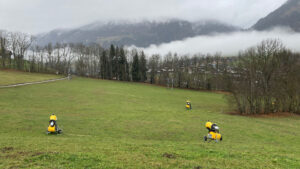FS 3.174: Abandoned building stock in mountain regions
Details
Full Title
Abandoned (agricultural) building stock in mountain regions: Obstacles or opportunities for rural development?
Scheduled
—
Convener
Co-Conveners
Assigned to Synthesis Workshop
—
Categories
Agriculture, Conservation, Policy, Sustainable Development, Others
Keywords
Abandoned Building Stock, Farm Architecture Revitalization, Participative Action Methods, Lifestyle Im-Mobility, Rural Development
Description
Out-migration, an aging population and the abandonment of farms are implications of structural change in rural mountain areas. As locals leave the valley end for better prospects on the valley floor or in urban areas, they abandon what was once their lives’ core: buildings. Research and practice are increasingly focusing on vacant buildings, their revitalization and reutilization, albeit primarily in urban contexts. In rural areas, however, there is a lack of knowledge about both the processes leading to abandoned building stock and the consequences for rural development. Moreover, depending on the perspective (owners, real estate developers, regional managers, communal politicians or residents), abandoned building stock is complex to define, quantify and mobilize. In mountain areas, in-depth knowledge of (agricultural) vacancies is vital for two reasons: (1) Building plots are topographically limited there. (2) Mountain farms are carriers of the in/tangible cultural landscape – cultural heritage that is gradually deteriorating due to hesitant or delayed transfer. Analyzing obstacles and strategies for repurposing structural vacancies – whether endogenously by locals or exogenously by newcomers – holds potential for repopulation and thus the sustainable development of affected mountain communities. This session aims to gather insights from different methodological, conceptual and disciplinary angles to expand knowledge on – drivers of vacancies in mountain areas, especially in relation to abandoned farm buildings – barriers or best practices for their revitalization in terms of rural development


